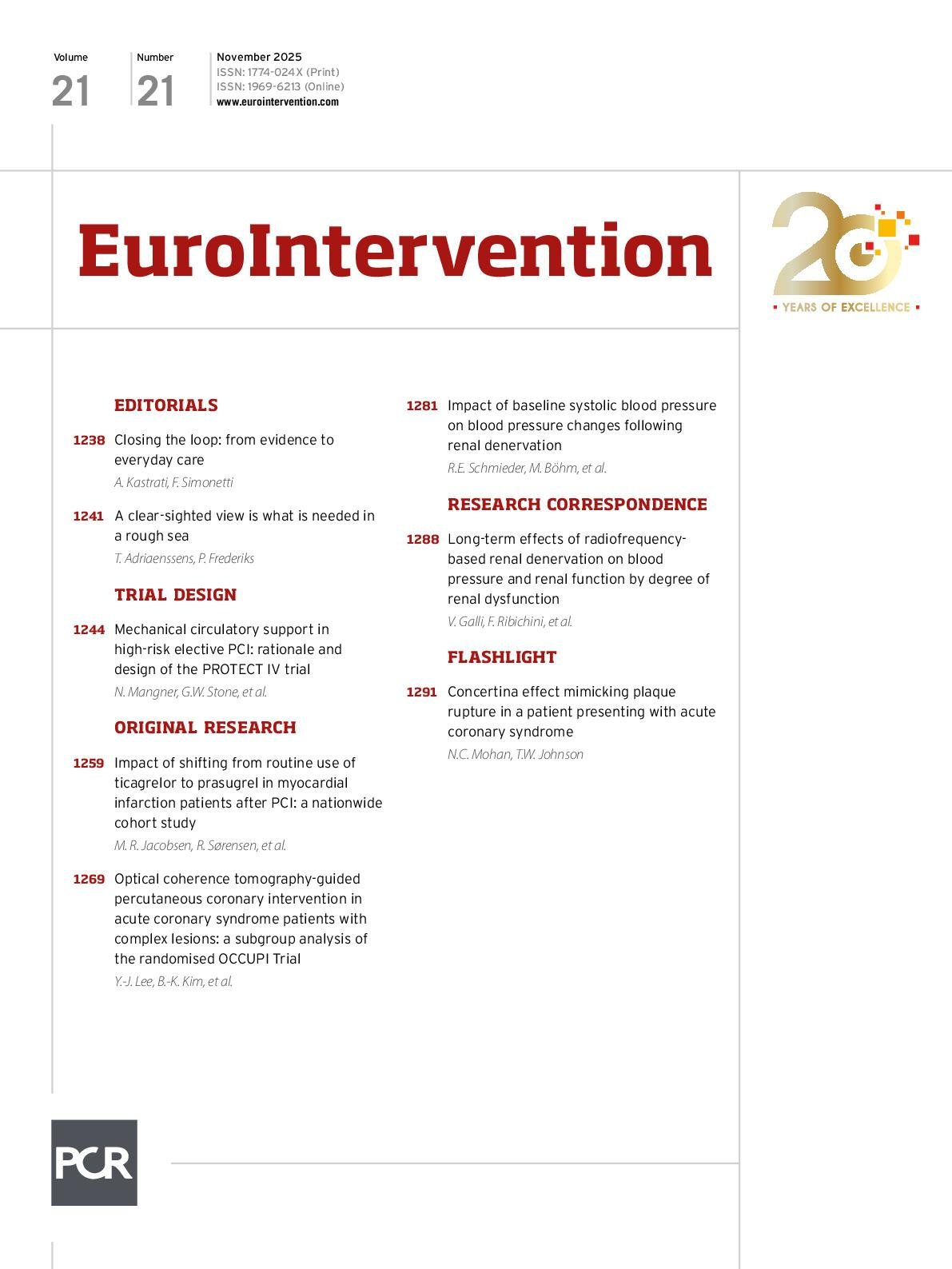Arterial hypertension is highly prevalent in patients with chronic kidney disease (CKD)1. Sustained high blood pressure (BP) accelerates kidney function decline, which in turn makes hypertension difficult to treat, and renal sympathetic signalling may negatively impact kidney function and BP1. Renal denervation (RDN) aims to disrupt this circuit with beneficial effects on BP control and, theoretically, kidney function. Despite the strong rationale for RDN use in patients with CKD, these subjects are frequently excluded from randomised controlled trials, and the European Society of Cardiology (ESC) guidelines contraindicate RDN if the estimated glomerular filtration rate (eGFR) is below 40 mL/min/1.73 m1,2]. As early RDN adopters, we collected data to explore the medium- to long-term effects of this therapy on BP and kidney function in subjects with various degrees of CKD. Patients with resistant and/or uncontrolled hypertension were screened for RDN, as approved by the local institutional review board. Eligibility and enrolment were assessed by the dedicated multidisciplinary team as described previously2. Clinical evaluation, blood and urine tests, and abdominal imaging ruled out secondary hypertension, and preliminary medical therapy...
Sign up for free!
Join us for free and access thousands of articles from EuroIntervention, as well as presentations, videos, cases from PCRonline.com

